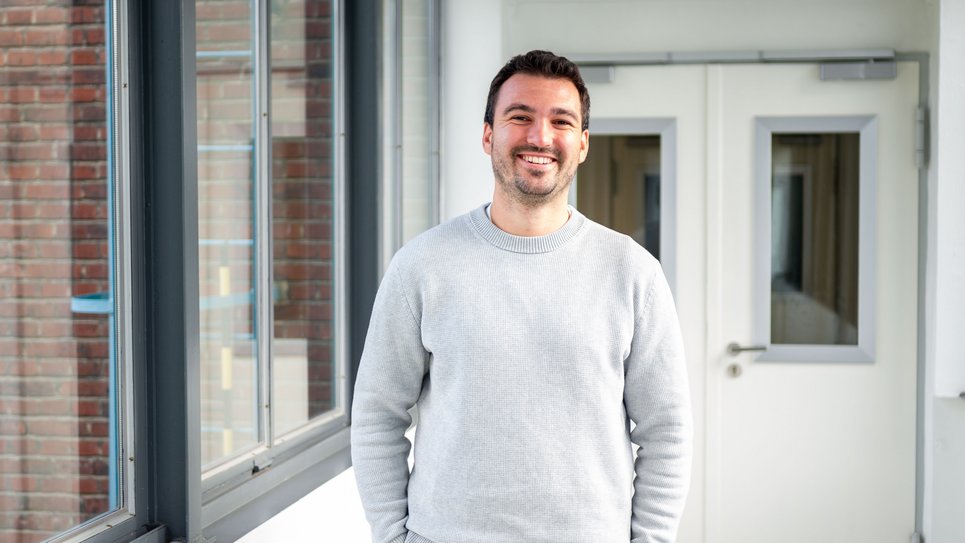Dr. Tim M. Schwarz awarded Walter Benjamin Grant
New research group explores magnesium alloys for implant materials

The German Research Foundation has awarded Dr. Tim M. Schwarz, a postdoctoral researcher at the Max Planck Institute for Sustainable Materials, the Walter Benjamin Grant. This grant enables Schwarz to advance his research to understand wet corrosion of magnesium alloys, a promising candidate for bioresorbable implants, and to build up his own research group on “Interfacial processes/reactions at the atomic scale”.
“I’m thrilled to receive this grant at the start of my postdoctoral research. It is a great recognition of my efforts over the last few years to advance atom probe tomography to be able to study in-situ interfacial processes and reactions at the atomic level. This prize will allow me to apply the microscopy method I advanced during my PhD to explore the corrosion mechanism at the liquid-solid interface of magnesium alloys that hold great potential as implant materials, if their corrosion behaviour is further understood and can be controlled”, says Schwarz. Solid-liquid interfaces are critical to improving the properties of materials in applications ranging from battery electrodes and catalytic reactions to biomedical implants. However, the capabilities to analyse these processes in-situ at the liquid-solid interface with high local and chemical resolution are very limited and hinder the development of new materials with improved properties, where atom probe tomography can play a crucial role in unravelling the processes. The key research questions are: how do surrounding liquids, like blood or electrolytes, interact with and affect the solid implant or battery electrode materials? Which corrosion products form and how do different elements segregate and influence the properties?
During his doctoral research, Schwarz was awarded with the Erwin Müller Outstanding Emerging Scientist Award, the highest award in the Field Emission Society. “Magnesium alloys play a central role in my new project funded by the Walter Benjamin Grant. “Magnesium is both biocompatible and biodegradable, making it ideal for implants that could naturally resorb over time, unlike temporary implants made from titanium or steel, which must be removed after a certain time. However, rapid and unpredictable corrosion remains a significant challenge”, explains Schwarz. With atom probe tomography, Schwarz’s method now enables the analysis of frozen liquids and the liquid-solid interface at near-atomic resolution. The next critical step he aims to develop in his project is the ability to analyse the influence of different alloying elements and electrolytes on the reactive interfaces between liquids and solids in real-time.
The Walter Benjamin Grant provides early-career postdoctoral researchers the opportunity to conduct an independent research project of their choice, with funding for the group leader’s position over a two-year period. The host institution supports additional project expenses. Named after the German philosopher and cultural critic Walter Benjamin (1892-1940), the grant supports projects of intellectual and scientific depth in diverse fields.
Author: Yasmin Ahmed Salem
